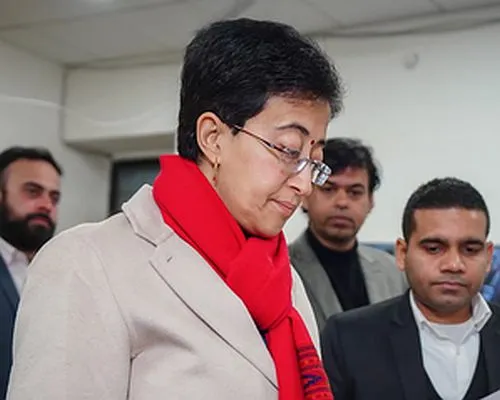Following the party’s loss to the BJP in the Delhi Assembly elections, AAP leader Atishi resigned from her position as chief minister on Sunday.
At the Delhi Secretariat, she handed in her resignation to LG V.K. Saxena.
By a margin of 3,521 votes, Atishi, a crucial Aam Aadmi Party (AAP) strategist, defeated Ramesh Bidhuri of the BJP to keep her Kalkaji seat.
Her win, however, was one of the few positive developments for the AAP during the otherwise terrible election, which saw shocking losses for party national convenor Arvind Kejriwal, Satyendar Jain, and senior officials Manish Sisodia.
The AAP’s ten-year hegemony in the capital came to an end on Saturday when the BJP swept to power. The overwhelming triumph not only signifies the end of the Kejriwal-led governance model but also signals a shift in public sentiment — where freebies and sops no longer guarantee electoral success.
Since it currently controls all of its neighboring states, including Haryana, Uttar Pradesh, Uttarakhand, and Rajasthan, the BJP’s victory in Delhi solidifies its hold on North India. It’s interesting to note that the BJP’s triumph was greatly aided by its control of border constituencies, especially those that border Haryana and Uttar Pradesh.
Voters were not persuaded by the AAP’s broader governance narrative or its repeated charges against the Haryana government over water poisoning in the Yamuna.
AAP’s handling of Punjab’s stubble-burning problem also drew criticism from voters, who saw the party’s frequent clashes with the Centre and Delhi’s Lieutenant Governor as distraction strategies.
After suffering heavy losses in the 2015 and 2020 elections, the BJP has been waiting a long time to regain Delhi, but this victory puts an end to that wait. With a clear mandate, the BJP will now be able to carry out its plans for the nation’s capital, ending the AAP period in Delhi politics.







 Finance
Finance







